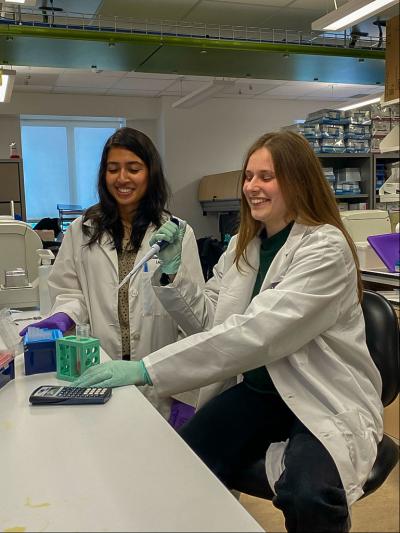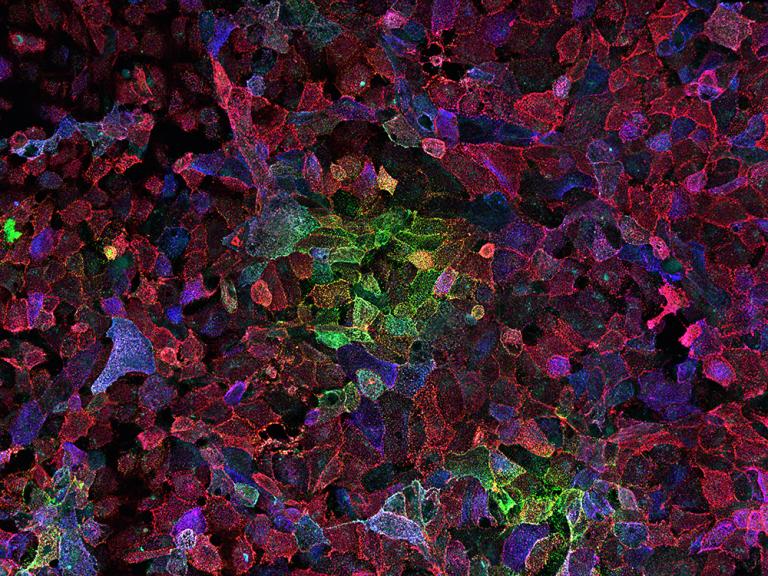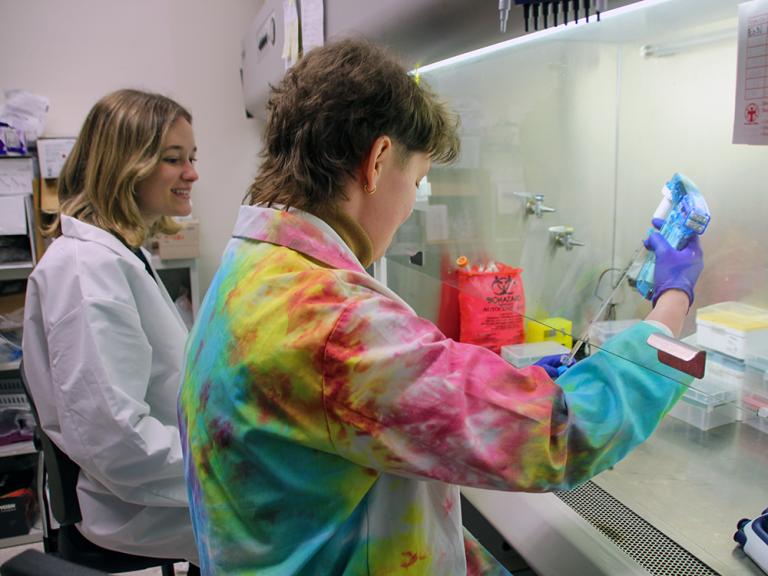By Tamara Haque, Ph.D. and Emily Youngblood
Tamara Haque, Ph.D., is a Postdoctoral Fellow in the Food Allergy Research Unit of the Laboratory of Allergic Diseases. After receiving this year's Postbac Distinguished Mentor Award, she reflects on her mentoring philosophy and how postdoc mentors can help their postbac mentees make the most of their training experience.
Mentorship is an essential part of science, as it is often the trainees who do the heavy lifting that drives the field forward. My values as a mentor are largely influenced by my experience as a mentee, as admittedly, I have been a mentee far longer than I have been a mentor at this early stage of my career. The foremost value I have carried over from my training is that a mentor should help the mentee find joy and inquisitiveness in research and discovery. My observations have led me to believe that the best researchers are those who keep a sense of awe in their work and that of their colleagues. This awe creates unwavering dedication, curiosity, and integrity—key factors in research and discovery.
My mentoring philosophy adopts a mentee- centered style, creating an environment that allows a new researcher to gain confidence while obtaining the necessary investigative and technical skills for long-term success as a scientist. Based on my experience, I find that the best way to do this at the postbac level is to train in phases. The first phase includes one-on-one training, followed by the second phase, where the mentee is given an independent task, with help available as needed. It is important to assign low-stakes experiments and those with known outcomes to be able to adequately assess the mentee’s progress and provide meaningful feedback. The third phase involves more independence, encouraging the mentee to think about the bigger picture of their experiments. The fourth phase includes assigning more difficult tasks, which may involve troubleshooting and creative thinking.
I believe that we are all on a continuous learning journey with no ‘final phase.’ Rather, we continue to evolve and become better scientists throughout our careers. Balancing technical and professional mentorship is a challenge, but I find that keeping an ongoing conversation about professional development separate from the technical training is helpful. My advice to other postdocs mentoring postbac fellows is to put yourself in their shoes and think back to what would have helped you at that stage of your career and make that a reality for your mentee. How can you make this a fun but challenging and productive experience for them? We can all do our part in attracting and retaining talented trainees in the research field by providing a positive postbac experience for our mentees. Ultimately, watching our mentees succeed makes every effort well worth it.
Postbac Mentee: Emily Youngblood
I knew I was not ready to start graduate school right after finishing my undergraduate studies, but I truly had no idea how little I knew until I started working with Tamara Haque, Ph.D., a postdoctoral fellow in the Laboratory of Allergic Diseases. When I first arrived at NIH, I didn’t know how to do many basic lab techniques. Tamara patiently taught me aseptic practices, cell culture, how to work with mice, and a variety of assays. She explained projects and experiments in detail and answered my many questions. Tamara not only pushes me to be a better scientist but also reminds me of the importance of taking breaks (which usually involve a trip to the Ben and Jerry’s ice cream truck on the NIH main campus). Science is challenging and it involves a lot of failure, but ice cream is a sure way to lessen the sting. It is clear Tamara wants me to succeed, not just to prevent any mishaps with her experiments but also to ensure that I am prepared to take the next step in my career. Tamara has taught me valuable scientific techniques and habits that I can bring with me wherever I end up next after completing my postbac. I nominated Tamara for the Postbac Distinguished Mentor Award because she is a patient and respectful mentor who is genuinely invested in my growth and success as a researcher.
Learn more about postbaccalaureate training and postdoctoral training opportunities at NIAID.







